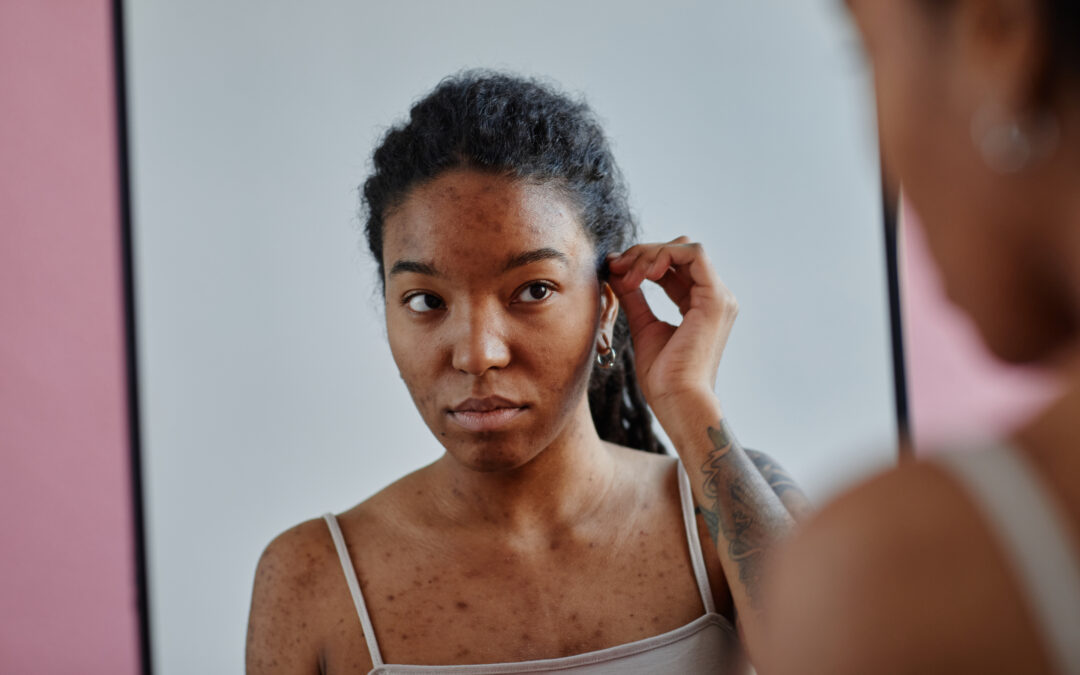Did you know that there’s a difference between eating disorders and disordered eating?! People often use these terms interchangeably, but it’s important to know that they have unique qualities and affect people’s well-being in different ways. We’re here to shed light on these differences and similarities so that you can better support yourself and others. Let’s explore the fascinating world of eating disorders and disordered eating together!

Table of Contents
Defining Eating Disorders and Disordered Eating
Eating disorders are complex mental health conditions that involve severe disruptions in eating behaviors, thoughts, and emotions. They are characterized by an intense focus on food, weight, and body shape, leading to extreme behaviors that can harm physical and psychological health. These disorders are complex and can be influenced by various factors like genetics, biology, psychology, and the environment. It’s important to note that each type of eating disorder has its unique characteristics, but they all share the common feature of causing significant distress and interfering with a person’s ability to lead a fulfilling life. Examples include:
- Anorexia nervosa
- Bulimia nervosa
- Binge-eating disorder
- ARFID
- Pica
Disordered eating, on the other hand, refers to a range of irregular eating behaviors and attitudes towards food and body image that don’t meet the clinical criteria for an eating disorder. It encompasses various behaviors, such as:
- Dieting
- Engaging in calorie restriction, binging, or purging irregularly or on a limited basis
- Excessive preoccupation with food and body shape
- Skipping meals
- Restricting certain foods or entire food groups

Differences between Eating Disorders and Disordered Eating
Here are the main differences between eating disorders and disordered eating:
Severity and Frequency
Eating disorders are characterized by more severe symptoms compared to disordered eating. The behaviors associated with eating disorders often occur more frequently, have a significant impact on daily life, and are accompanied by intense psychological distress. Disordered eating, on the other hand, may be less frequent, less extreme, and may not cause significant distress.
Diagnostic Criteria
Eating disorders are diagnosed based on specific criteria outlined in the Diagnostic and Statistical Manual of Mental Disorders (DSM-5). These criteria include specific behavioral patterns, psychological symptoms, and physical consequences. Disordered eating, however, does not meet the full diagnostic criteria for an eating disorder but still reflects problematic eating patterns and attitudes.
Medical Complications
Eating disorders can lead to severe medical complications due to malnutrition, electrolyte imbalances, and other physical consequences of disordered eating. These complications may include organ damage, hormonal disturbances, weakened bones, cardiovascular issues, and digestive problems. While disordered eating may have negative physical effects, they are generally less severe than those seen in eating disorders.
Similarities between Eating Disorders and Disordered Eating
Here are the main similarities between eating disorders and disordered eating:
Risk Factors
There are common risk factors associated with both eating disorders and disordered eating. These can include societal pressure to conform to certain body ideals, low self-esteem, perfectionism, history of dieting, family or personal history of eating disorders, and underlying psychological factors.
Impact on Daily Life
Eating disorders and disordered eating can disrupt daily life and functioning. They may affect relationships, social activities, work or school performance, and overall quality of life.
Need for Support and Intervention
Both eating disorders and disordered eating require support and intervention. Seeking help from healthcare professionals, such as therapists, dietitians, or doctors, is important in addressing and managing these challenges effectively. Addressing disordered eating patterns or seeking help at the early stages can help prevent the development or progression of a more severe eating disorder.
Seeking Support

You don’t need to have an official diagnosis to seek treatment for eating disorders. If you have any doubts or worries about your eating habits or body image, it’s totally okay to reach out for help. Your well-being is important, no matter what label or diagnosis you may or may not have.
Here at Confidently NourishED, we can offer guidance, support, and interventions to help you through these challenges. Taking that step to seek help early on can make a big difference and set you on a path towards a healthier relationship with food and your body. You can apply here to work with one of our dietitians!
References
- Academy of Nutrition and Dietetics. What is Disordered Eating?Reviewed February 28, 2020. https://www.eatright.org/health/health-conditions/eating-disorders/what-is-disordered-eating
- NEDA. Common Health Consequences of Eating Disorders. https://www.nationaleatingdisorders.org/health-consequences






0 Comments